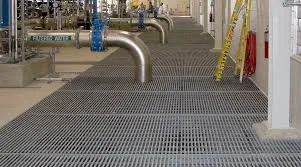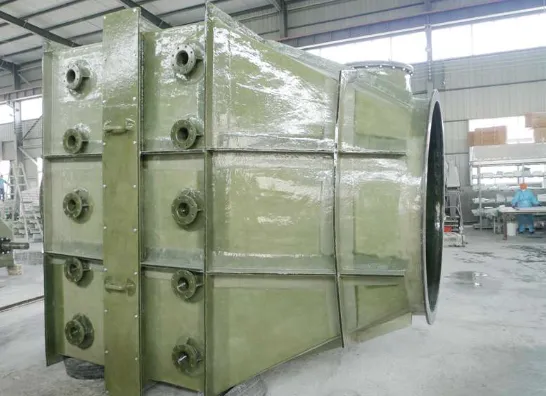
-
 Afrikaans
Afrikaans -
 Albanian
Albanian -
 Amharic
Amharic -
 Arabic
Arabic -
 Armenian
Armenian -
 Azerbaijani
Azerbaijani -
 Basque
Basque -
 Belarusian
Belarusian -
 Bengali
Bengali -
 Bosnian
Bosnian -
 Bulgarian
Bulgarian -
 Catalan
Catalan -
 Cebuano
Cebuano -
 China
China -
 China (Taiwan)
China (Taiwan) -
 Corsican
Corsican -
 Croatian
Croatian -
 Czech
Czech -
 Danish
Danish -
 Dutch
Dutch -
 English
English -
 Esperanto
Esperanto -
 Estonian
Estonian -
 Finnish
Finnish -
 French
French -
 Frisian
Frisian -
 Galician
Galician -
 Georgian
Georgian -
 German
German -
 Greek
Greek -
 Gujarati
Gujarati -
 Haitian Creole
Haitian Creole -
 hausa
hausa -
 hawaiian
hawaiian -
 Hebrew
Hebrew -
 Hindi
Hindi -
 Miao
Miao -
 Hungarian
Hungarian -
 Icelandic
Icelandic -
 igbo
igbo -
 Indonesian
Indonesian -
 irish
irish -
 Italian
Italian -
 Japanese
Japanese -
 Javanese
Javanese -
 Kannada
Kannada -
 kazakh
kazakh -
 Khmer
Khmer -
 Rwandese
Rwandese -
 Korean
Korean -
 Kurdish
Kurdish -
 Kyrgyz
Kyrgyz -
 Lao
Lao -
 Latin
Latin -
 Latvian
Latvian -
 Lithuanian
Lithuanian -
 Luxembourgish
Luxembourgish -
 Macedonian
Macedonian -
 Malgashi
Malgashi -
 Malay
Malay -
 Malayalam
Malayalam -
 Maltese
Maltese -
 Maori
Maori -
 Marathi
Marathi -
 Mongolian
Mongolian -
 Myanmar
Myanmar -
 Nepali
Nepali -
 Norwegian
Norwegian -
 Norwegian
Norwegian -
 Occitan
Occitan -
 Pashto
Pashto -
 Persian
Persian -
 Polish
Polish -
 Portuguese
Portuguese -
 Punjabi
Punjabi -
 Romanian
Romanian -
 Russian
Russian -
 Samoan
Samoan -
 Scottish Gaelic
Scottish Gaelic -
 Serbian
Serbian -
 Sesotho
Sesotho -
 Shona
Shona -
 Sindhi
Sindhi -
 Sinhala
Sinhala -
 Slovak
Slovak -
 Slovenian
Slovenian -
 Somali
Somali -
 Spanish
Spanish -
 Sundanese
Sundanese -
 Swahili
Swahili -
 Swedish
Swedish -
 Tagalog
Tagalog -
 Tajik
Tajik -
 Tamil
Tamil -
 Tatar
Tatar -
 Telugu
Telugu -
 Thai
Thai -
 Turkish
Turkish -
 Turkmen
Turkmen -
 Ukrainian
Ukrainian -
 Urdu
Urdu -
 Uighur
Uighur -
 Uzbek
Uzbek -
 Vietnamese
Vietnamese -
 Welsh
Welsh -
 Bantu
Bantu -
 Yiddish
Yiddish -
 Yoruba
Yoruba -
 Zulu
Zulu
Premium Fiberglass Storage Tanks FRP Acid & Chemical Solutions
- Introduction to Fiberglass Storage Solutions
- Technical Advantages Over Traditional Materials
- Performance Comparison of Leading Manufacturers
- Customization Options for Specific Industrial Needs
- Real-World Applications Across Industries
- Maintenance Best Practices for Longevity
- Future Trends in Fiberglass Storage Tank Innovation

(fiberglass storage tank)
Fiberglass Storage Tank Solutions for Modern Industries
Fiberglass-reinforced plastic (FRP) storage tanks have emerged as a cornerstone in industrial storage systems, particularly for corrosive or high-purity applications. These tanks leverage composite materials to deliver unparalleled resistance to acids, alkalis, and solvents. Industries handling sulfuric acid, hydrochloric acid, or sodium hypochlorite increasingly prefer FRP tanks, with global adoption rates growing 12% annually since 2020 according to industry reports.
Technical Superiority in Corrosive Environments
FRP tanks outperform steel and polyethylene alternatives through:
- Corrosion resistance: 98% reduction in material degradation versus carbon steel
- Temperature tolerance: Stable performance between -60°F to 250°F (-51°C to 121°C)
- Weight efficiency: 70% lighter than equivalent steel tanks
- Lifecycle costs: 40-60% lower maintenance expenses over 20-year service periods
Manufacturer Performance Benchmarking
| Brand | Max Pressure (PSI) | Chemical Resistance | Warranty | Lead Time |
|---|---|---|---|---|
| TankMaster Pro | 150 | Grade A | 15 years | 8 weeks |
| CorroShield FRP | 125 | Grade A+ | 20 years | 10 weeks |
| PolyGuard Ultra | 175 | Grade B+ | 12 years | 6 weeks |
Tailored Engineering Configurations
Advanced manufacturers now offer:
- Custom linings (vinyl ester, epoxy, or furan resin)
- Diameter adjustments from 4ft to 40ft (±0.25% tolerance)
- Hybrid designs integrating IoT monitoring sensors
- Seismic reinforcement for high-risk zones
Industry-Specific Deployment Cases
Chemical processing plants using 25,000-gallon FRP tanks reduced leakage incidents by 83% compared to previous steel installations. Municipal water treatment facilities report 92% cost savings on chlorine storage containment over 7-year operational periods. Mining operations utilizing acid storage tanks with abrasion-resistant linings extended maintenance cycles from 6 months to 5 years.
Operational Longevity Strategies
Proactive maintenance protocols include:
- Biannual ultrasonic thickness testing
- pH-balanced cleaning solutions
- UV-resistant topcoat reapplication every 8-10 years
- Full-system pressure testing during downtime
Advancing Fiberglass Storage Tank Technologies
Recent breakthroughs in resin formulations enable 35% greater structural integrity for fiberglass storage tank
s operating in extreme conditions. Smart tank systems with embedded sensors now provide real-time thickness monitoring, predicting maintenance needs with 89% accuracy. These innovations position FRP tanks as the sustainable choice for next-generation industrial storage requirements.

(fiberglass storage tank)
FAQS on fiberglass storage tank
Q: What are the main advantages of using a fiberglass storage tank for acid storage?
A: Fiberglass storage tanks offer exceptional corrosion resistance against acids, lightweight construction for easier installation, and long-term durability in harsh chemical environments.
Q: How does an FRP storage tank differ from traditional metal tanks?
A: Unlike metal tanks, FRP (fiberglass-reinforced plastic) storage tanks resist rust and chemical degradation, require minimal maintenance, and provide better cost-efficiency over their lifespan.
Q: What types of chemicals are suitable for fiberglass storage tanks?
A: Fiberglass storage tanks are ideal for storing acids, alkalis, solvents, and corrosive liquids, thanks to their non-reactive resin linings and robust structural design.
Q: Can FRP storage tanks withstand high temperatures and pressures?
A: Yes, FRP storage tanks are engineered to handle elevated temperatures and moderate pressures, but specific limits depend on the resin matrix and tank design specifications.
Q: How do I maintain a fiberglass storage tank used for acid storage?
A: Regular inspections for surface damage, cleaning to prevent residue buildup, and avoiding mechanical impacts ensure optimal performance of fiberglass acid storage tanks.
Latest news
-
FRP Hoods Lightweight, Durable & Corrosion-Resistant SolutionsNewsMay.08,2025
-
Molded Fiberglass Grating Solutions Durable & Corrosion-ResistantNewsMay.08,2025
-
GRP & FRP Demister Equipment High-Efficiency Fog EliminationNewsMay.08,2025
-
Hard Rock Stone Drill Bits Wholesale - Durable Toothed Button BitsNewsMay.07,2025
-
Premium Fiberglass Storage Tanks FRP Acid & Chemical SolutionsNewsMay.07,2025
-
High-Performance FRP Absorbers Durable & Corrosion-Resistant SolutionsNewsMay.07,2025









